20 Oct Who do you think you are?
When the Beatles sang the song “Hello Goodbye” in the 60’s I wonder what prompted Lennon and McCartney to write the lyrics.
You say, “Yes”, I say “No”.
You say, “Stop” and I say “Go, go, go”.
Oh no.
You say “Goodbye” and I say “Hello, hello, hello”.
I don’t know why you say “Goodbye”, I say “Hello, hello, hello”.
I don’t know why you say goodbye, I say hello.
I say “High”, you say “Low”.
You say “Why?” And I say, “I don’t know”.
They were perhaps identifying that we humans are not all alike and that does not mean that one behaviour is right or wrong, good or bad.
As I see things, we are all different (thank heavens – wouldn’t it be boring if we all thought and acted the same?). In the early 1900’s a Swiss psychiatrist, Carl Jung, came up with a theory that we are all born with a preferred way in which we live in the world. These preferences, he explained, develop throughout our life, but seldom change. We are all different “types”
In 1943, a mother and daughter partnership, Isabel Briggs Myers and Katharine Cook Briggs, became interested in Carl Jung’s work and embarked on what became more than two decades of “type” watching. They identified patterns in what appears to be randomness in people’s personalities, lifestyle and behaviours. From their findings they created a paper and pencil questionnaire to assess type, which is now used all over the world to celebrate the differences in people.
So here we are today still working in teams, living in families, socialising…. and still we find that there are times when we do not understand ourselves, let alone the people around us. Everyone has a unique “type” or “profile” just like we all have unique fingerprints.
It is possible to take an online Myers Briggs questionnaire. However, that is only half the story, as there is no opportunity to validate or discuss your result. Working with a certified professional to review the report will help you to identify the type that fits you best. It also enables you to work out how to get the best out of you and those around you. Finding the real “you’” is such a great discovery. I call it the Eureka! moment.
Personality profiling can help in the following areas:
- Self awareness
- Career development and exploration
- Working in teams
- Relationships
- Problem solving
- Dealing with conflict
- Managing change
- Working in organisations
Next time your partner is late for a meeting or the person you work closely with doesn’t stop talking, or you cannot understand why the friend that always follows a hunch when you need concrete facts, then the Myers Briggs Type Indicator will help you understand what’s really going on.

